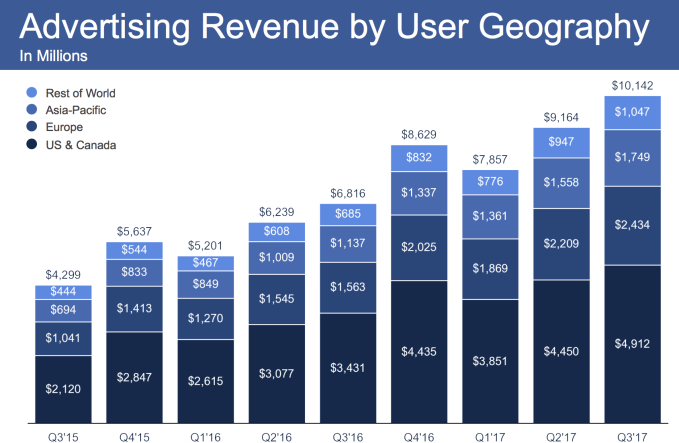Facebook today said it is shifting to a “local selling structure” in countries outside the U.S., in which its advertising revenue in that country will be recorded by their local company in the country.
That means that rather than directly route its revenue to its international headquarters in Dublin, local policymakers and governments will potentially get an opportunity for greater visibility into the company’s revenue related to local advertising sales. The change comes amid a period where there is increasing scrutiny over companies that have held offshore revenue, especially in Ireland, where the European Commission in October slammed Dublin for failing to collect unpaid taxes from Apple.
“We believe that moving to a local selling structure will provide more transparency to governments and policy-makers around the world who have called for greater visibility over the revenue associated with locally supported sales in their countries,” Facebook CFO Dave Wehner said in a blog post today.
It’s not clear whether this will actually have a significant impact on Facebook’s existing structure. But there has been increased scrutiny on international corporations that generate a lot of revenue outside the U.S., like Apple and Facebook. As Facebook begins to expand even further internationally, it will also have to ensure that it has the right systems in place with local governments so it can operate without a ton of pressure.
The vast majority of Facebook’s 2 billion-plus monthly active users are, of course, outside the U.S., though they still generate significantly less revenue on a per-user base than those in North America. The U.S. and Canada still make up the biggest segment of Facebook’s advertising revenue, though it’s clear the company wants to continue to grow those international businesses. But it’s going to have to do so while cooperating with local governments as it continues to expand.

The company said it will implement this plan throughout 2018, with the goal of completing all offices by the first half of 2019.
